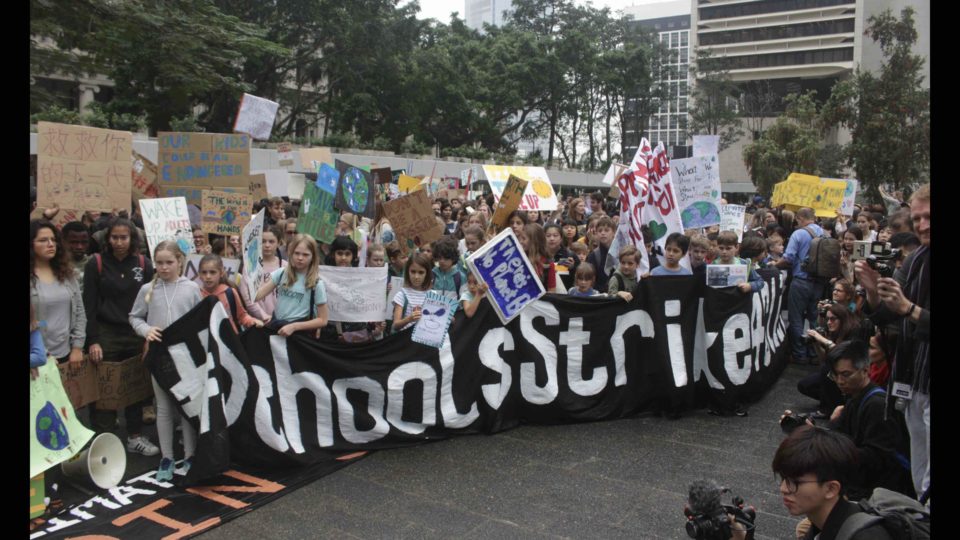More than a hundred Hong Kong students skipped a day of classes to march through the city, urging the SAR government to do more to tackle climate change as part of a global boycott movement that saw sister protests spring up in cities around the world.
The class boycott is part of the #FridaysForFuture movement, which was inspired by 16-year-old Swedish activist Greta Thunberg, who first staged a school strike outside the country’s parliament in Stockholm in August to call for action on climate change. You might remember her as the teen who gave a speech at the United Nations climate conference COP24, and who roasted world leaders at Davos.
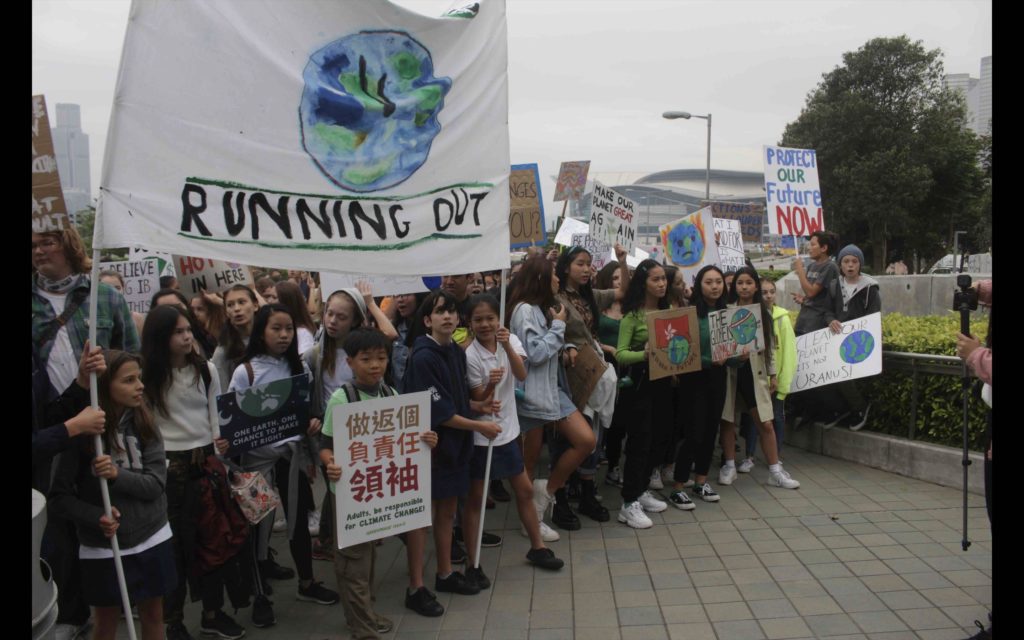
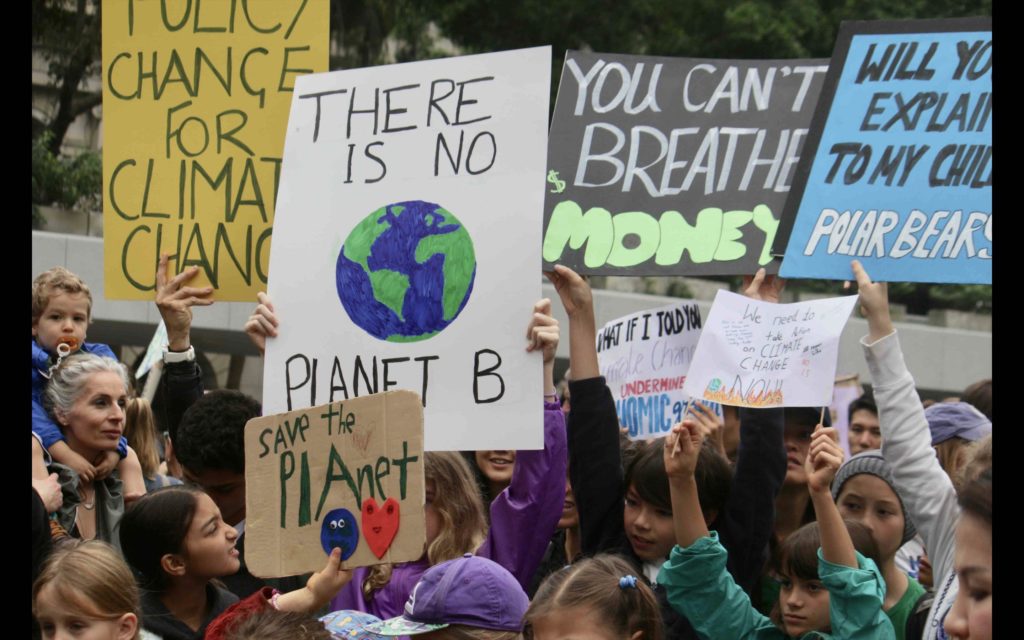
As attention to her cause snowballed, Thunberg’s rallying cry has inspired students all over the world to take to the streets, demanding their governments take more action. She has since been nominated for a Nobel Peace Prize.
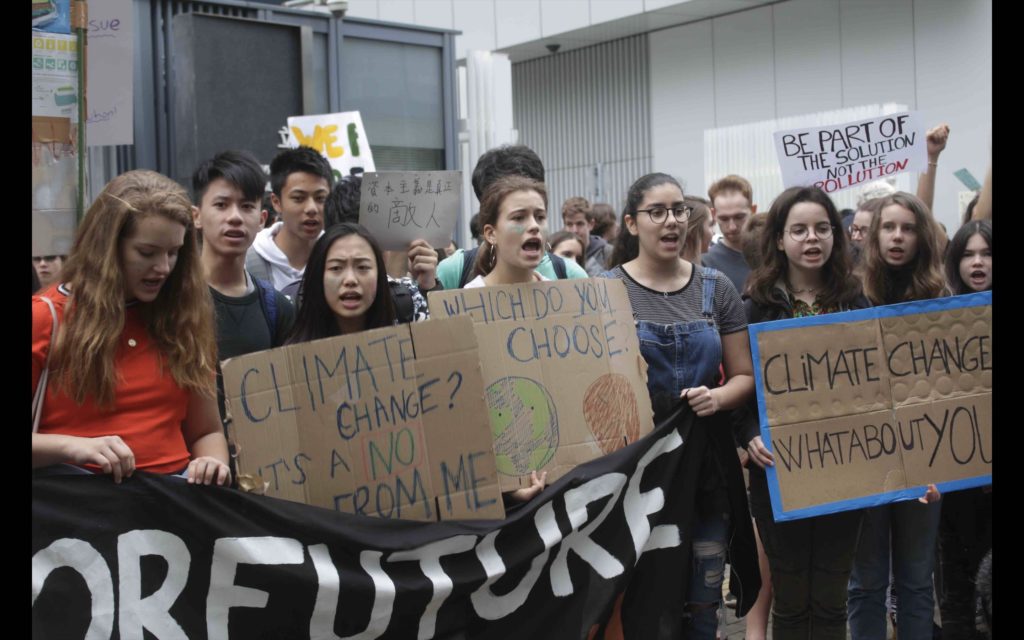
Students and parents gathered at the rally’s start point in Chater Garden, Central at 11am this afternoon chanting and waving placards with slogans such as, “There is no Planet B,” and “Don’t be a fossil fool”.
Environmental NGOs like Greenpeace and Friends of the Earth were also present at the rally.
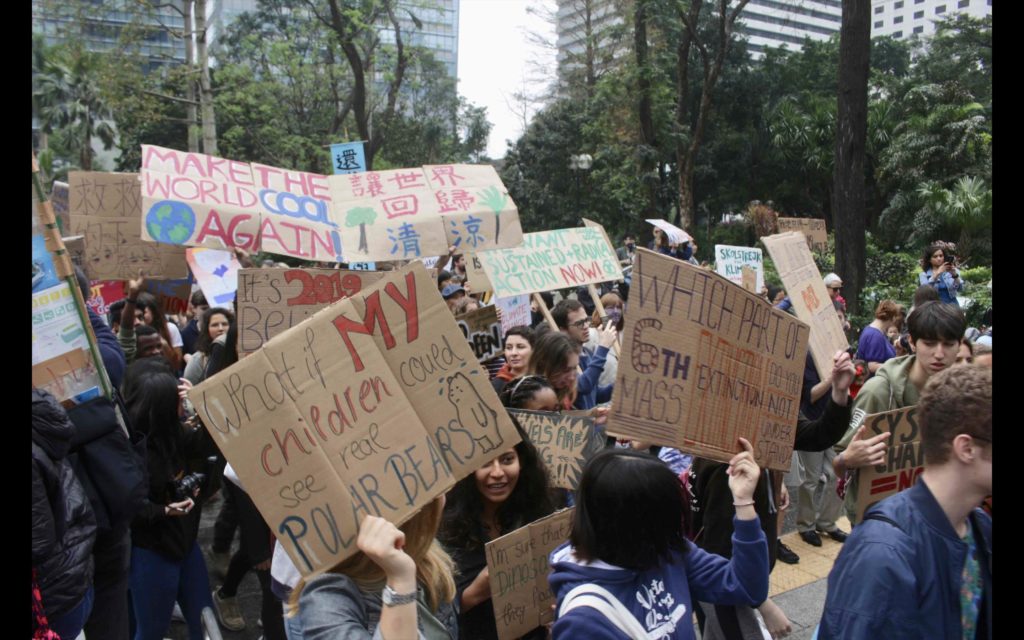
They procession then marched to the Central Government Headquarters in Admiralty, where they delivered letters and position papers addressed to Chief Executive Carrie Lam and Environment Secretary Wong Kam-sing.
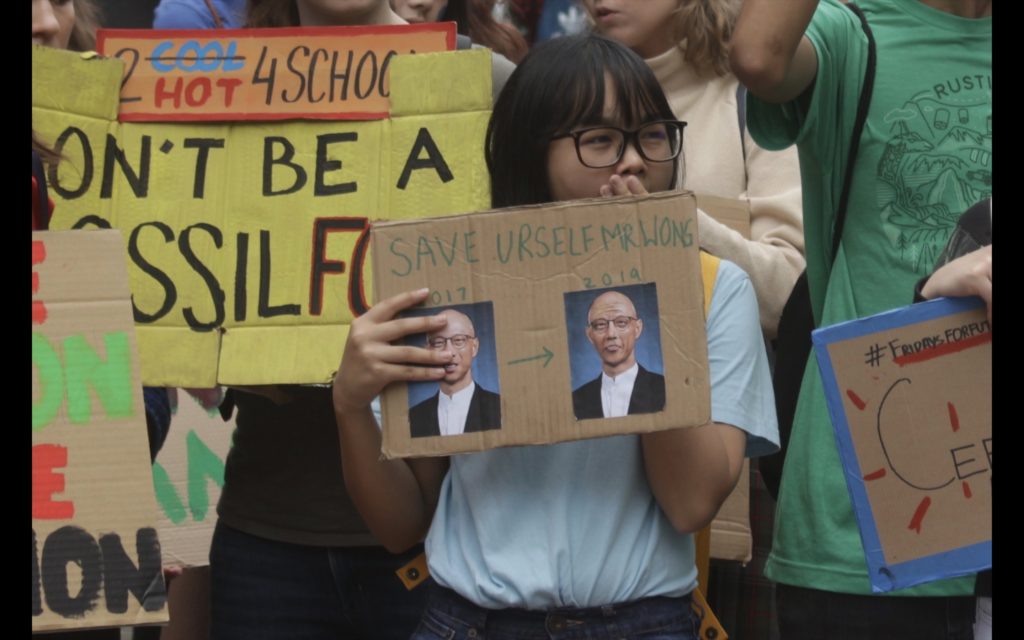
The letter detailed three main demands, which included increasing Hong Kong’s reliance on renewable energy sources; creating “youth representatives” within the government’s Steering Committee on Climate Change; and introducing a “Climate Action Officer” within the Environment Bureau who will be charged with overseeing climate change policies and initiatives.
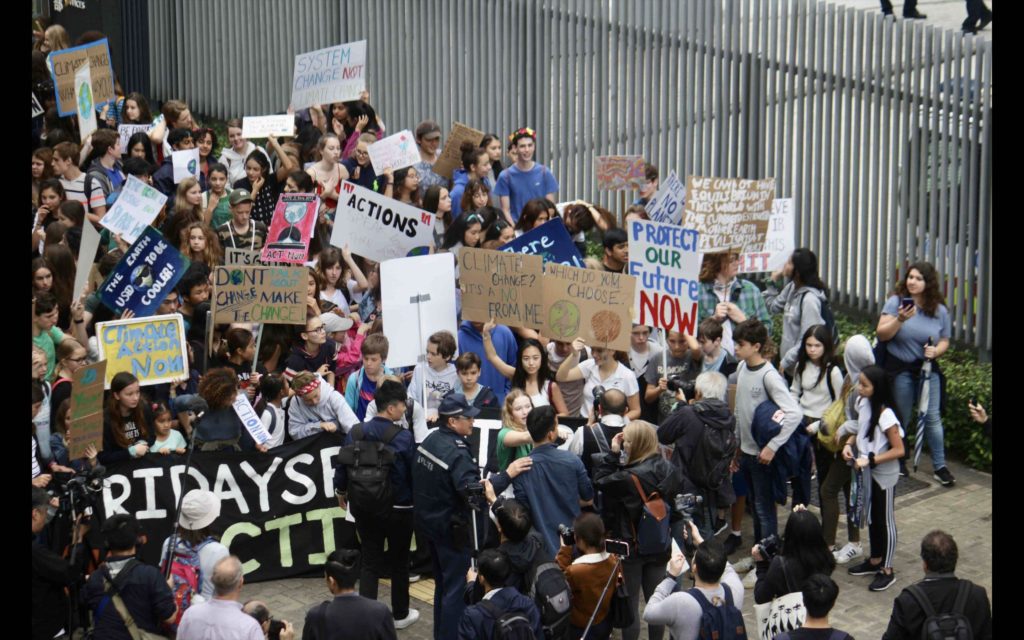
Also present at the protest was lawmaker Eddie Chu Hoi-dick, who said the government and political parties were “putting their heads in the sand” when it comes to climate change, and that students needed to take the lead on this issue.
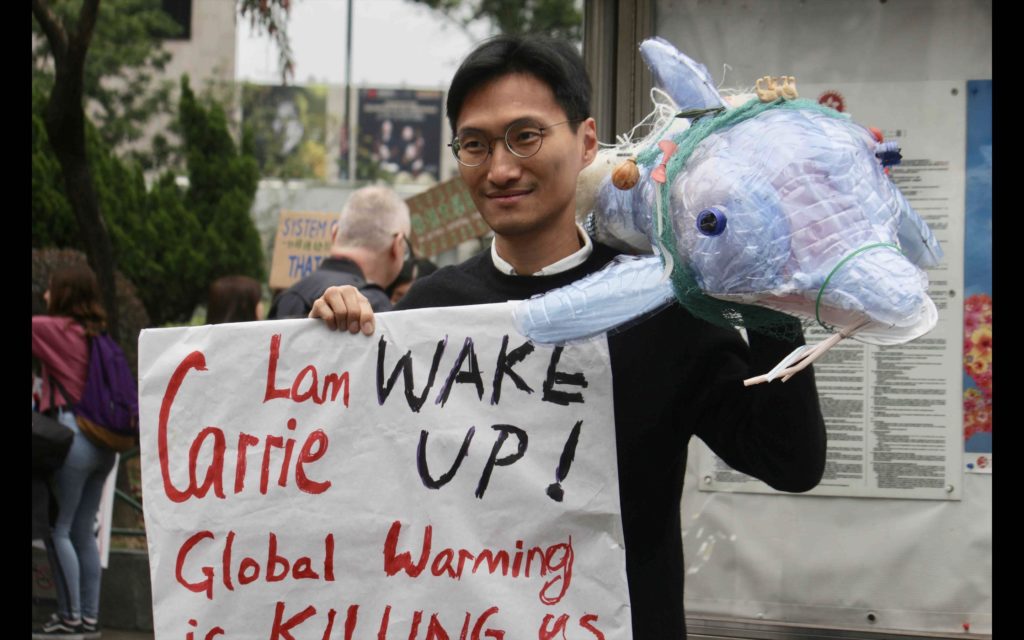
He also accused the chief executive of “pretending to be asleep on this issue,” citing a report by the Intergovernmental Panel on Climate Change (IPCC) published in October, which said that the world needs to reduce its man-made carbon emissions 45 percent from 2010 levels by 2030, and reach “net zero” emissions by 2050.
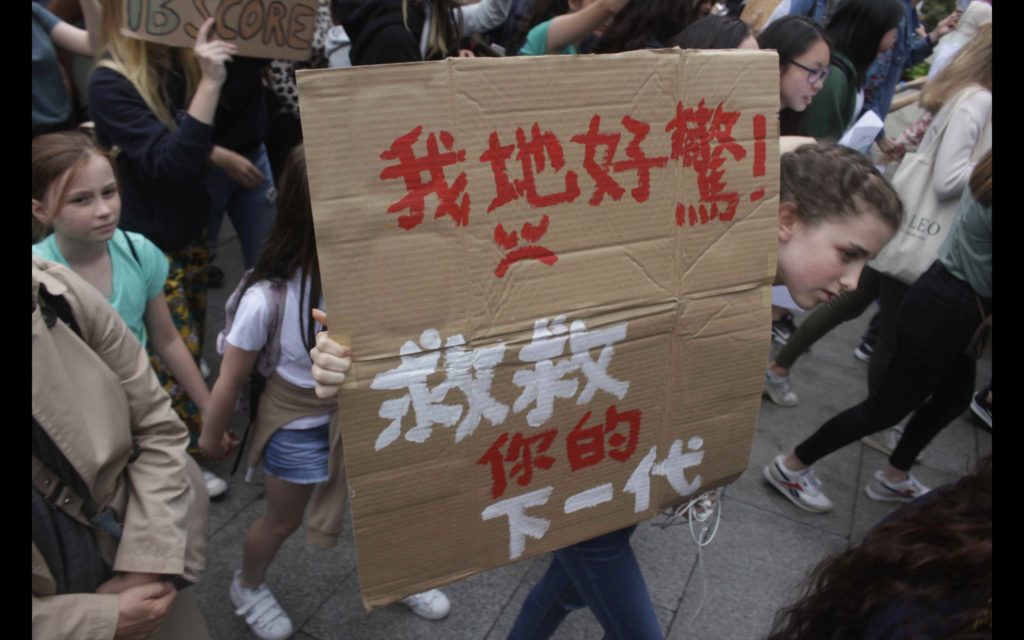
Hong Kong’s climate action plan, which was published in 2017, pledges a 26 to 36 per cent cut by 2030 from 2005 levels.
Chu told Coconuts HK that Hong Kong needs to “update our targets and make new strategies to cope with this.”
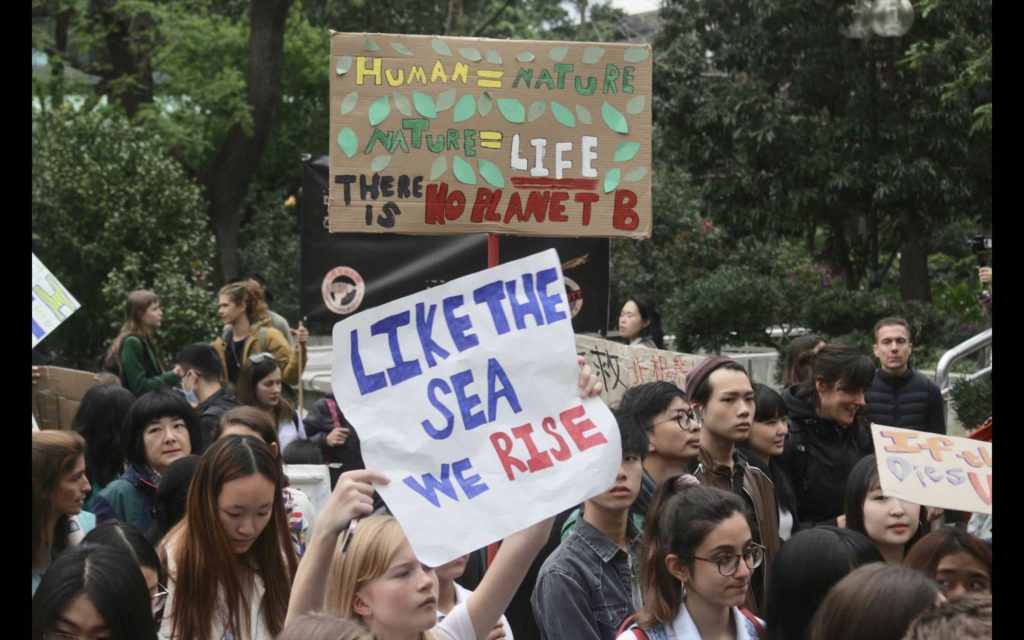
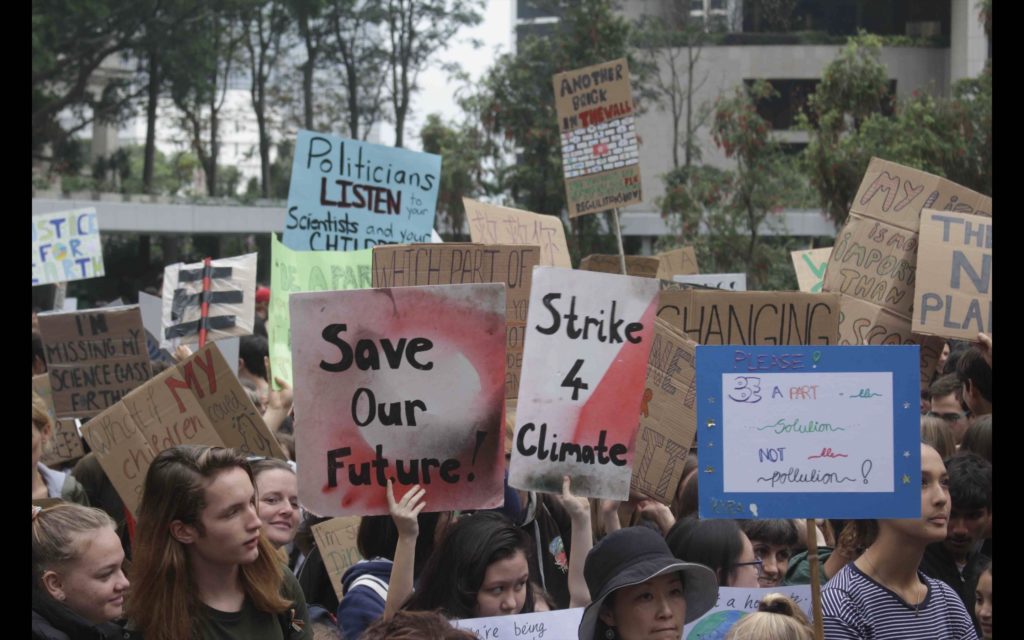
In February, the Education Bureau said they disapproved of the strike, saying that although the department respects the right of students to express their opinions in a “peaceful and legitimate manner,” it’s opposed to class boycotts, RTHK reported.
“Any form of boycott would disrupt order in schools, and interfere with the normal learning of students and operation of schools.”
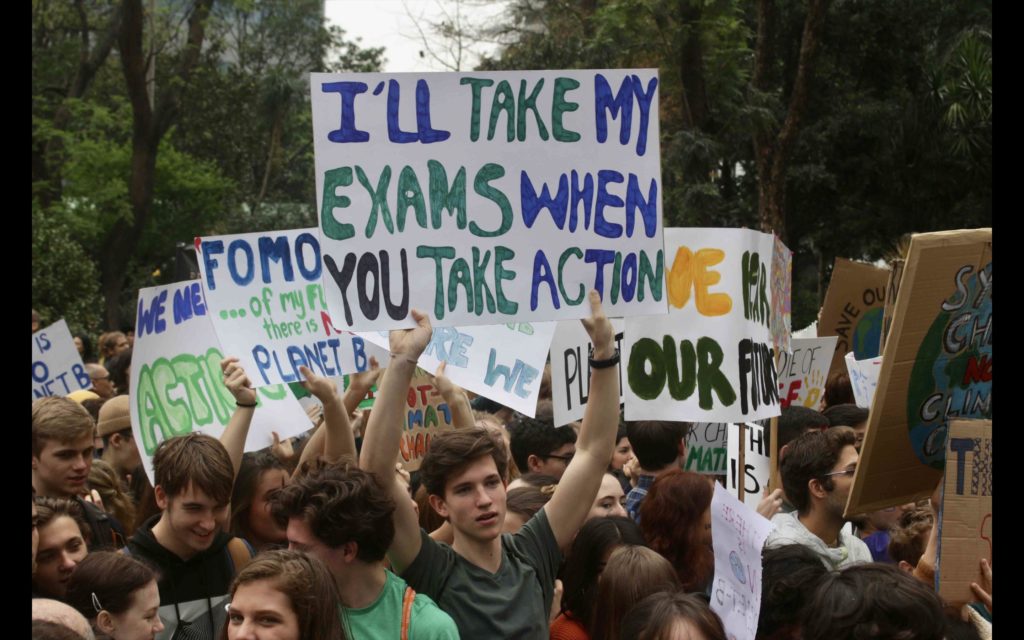
One of the students taking part in protest, 17-year-old Chloe Panlilio from St. Margaret’s Co-educational English Secondary and Primary School, said that skipping classes to raise awareness of the issue was “a small price to pay.”
“People are studying for the future that they might not have, and we’re fighting for the future we’re studying for,” she told Coconuts HK. “So it matters more when you weigh [the alternatives].”
